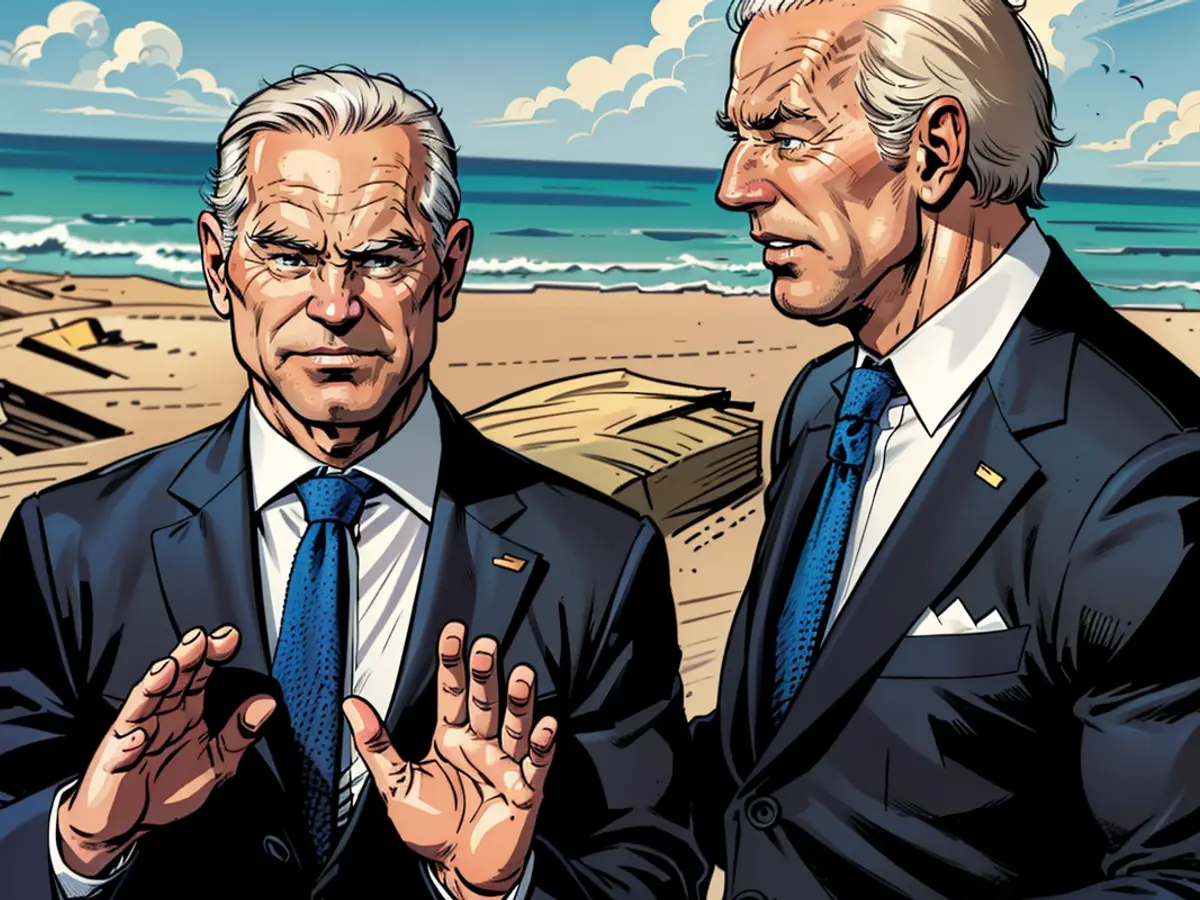Ahead of NATO anniversary summit: Scholz acknowledges the Alliance's contribution to security in Germany
Scholz continued, the guarantee of security, democracy, and freedom is "unchanged the task of the transatlantic alliance: that we support each other and that we can defend what is most important to us - our democracy and our freedom."
This is all the more important, as war reigns in Europe again after Russia's attack on Ukraine, the Chancellor said. Scholz referred to the extensive German support for Ukraine and called on the alliance partners to take note.
Ukrainian President Volodymyr Zelenskyy is expected in Washington. The 32 NATO countries will once again confirm at the summit from Tuesday to Thursday that Ukraine one day will become a member of the Alliance and will offer the country further military aid. The desired membership invitation, however, will not be given.
Scholz expects further signals of support for Ukraine from the jubilee summit in Washington. It's about "a message to the Russian president that he cannot rely on the fact that he can somehow wind down this war and wait for the support for Ukraine to wane."
US President Joe Biden announced new measures to strengthen Ukraine's air defense in response to attacks with Russian rockets on Ukraine, resulting in dozens of deaths on Monday. Biden described the rocket attacks, including on a children's hospital in Kiev, as "a grim reminder of Russia's brutality" in the war.
The Kremlin stated that it was following the NATO meeting "with highest attention." NATO is "an alliance that sees Russia as an enemy, as an adversary," said Kremlin spokesman Dmitry Peskov.
There was criticism from China in response to NATO Secretary-General Jens Stoltenberg's accusations that Beijing was supporting Russia's war in Ukraine. The actions of NATO have "extremely high security risks for the world and the region," said the Chinese Foreign Ministry spokesperson Lin Jian. China firmly opposes the defamation and attacks by NATO on China, as well as its use of China as a pretext to advance into the Asian-Pacific region and stir up regional tensions.
At the start of this year's NATO summit in the US capital, President Biden invited the leaders to a reception on Tuesday evening to mark the 75th anniversary of the Alliance. The governments of Australia, Japan, New Zealand, and South Korea are also invited.
Besides Scholz, German Foreign Minister Annalena Baerbock (Greens) and Defense Minister Boris Pistorius (SPD) are traveling from Germany. Pistorius confirmed before the summit that Germany is ready to defend the Alliance in case of threat. Germany will show with the Bundeswehr and the Air Force that it is ready to make its contribution, he said.
Biden is politically weakened domestically: After his poor performance in the first TV debate before the US presidential elections against his rival Donald Trump, there is intense discussion in the US about Biden's health fitness.
Federal Chancellor Scholz stated this in Berlin, having no doubts about it. "I don't have such concerns," he said. "From the many conversations I have had with the American president, I know that he has well and meticulously prepared this summit with us."
The decisions to be made in Washington by NATO have been "developed in close coordination between Germany and the USA," added Scholz. "Therefore, this summit will be very successful."
- Chancellor Olaf Scholz highlighted the enduring task of NATO at the summit, which includes ensuring security, democracy, and freedom for its members.
- Scholz emphasized the importance of this task in light of the ongoing war in Europe, triggered by Russia's attack on Ukraine.
- The 32 NATO countries will gather in Washington for their anniversary summit, during which they will reaffirm their support for Ukraine's eventual membership.
- Scholz anticipates this summit will send a strong message to Russian President Vladimir Putin, indicating that he cannot count on the support for Ukraine waning.
- President Joe Biden announced additional measures to bolster Ukraine's air defense in response to the deadly Russian rocket attacks on Ukraine.
- The Kremlin expressed high interest in the NATO summit and characterized NATO as an adversary, who views Russia as an enemy.
- Criticism arose from China in response to NATO Secretary-General Jens Stoltenberg's accusations of Chinese support for Russia's war in Ukraine.
- Before departing for the Washington summit, Foreign Minister Annalena Baerbock (Greens) and Defense Minister Boris Pistorius (SPD) confirmed Germany's readiness to defend NATO in case of threat.
- Biden was seen as politically weakened domestically following his poor performance in the first TV debate before the US presidential elections against Donald Trump.
- Scholz, however, expressed confidence in Biden's preparation for the summit, having held numerous discussions with the US president.







